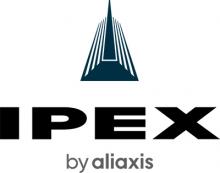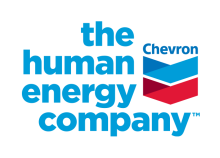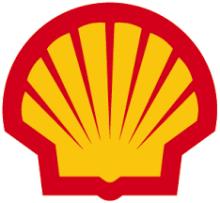58th Annual Loss Prevention Symposium (LPS)
The Loss Prevention Symposium (LPS) is one of several parallel symposia that comprise the Global Congress on Process Safety (GCPS). The purpose of the LPS conference is to present technological advances in process safety, explosion prevention, fire protection, and lessons learned from incident investigations. LPS focuses on process safety technology – new developments, cutting-edge solutions, and innovative/novel approaches to hazard identification and risk assessment/management.
Conference Registration is now open!
Encouraged Topics for this conference include, but not limited to:
- Fires, Explosions, Combustible Dust, and Chemical Reactivity
- Facility Siting, Consequence Analysis, and Risk Assessment
- Traditional Energy Infrastructure Safety
- Alternative Energy Infrastructure
- Engineered Safety System and Mitigation Technologies
- Cybersecurity
- Emergency Planning and Response
- GCPS LNG Safety
- Process Safety in Upstream
- Hydrogen Safety
- Garbage In, Garbage Out: Impact of Technical Quality Failures on Process Safety
- Transportation Safety and Risk Analysis
- Case Histories
LPS Chair & Vice Chair:
-
Manuel Herce and Katie Mulligan, LPS_chair@aiche.org
Session Topic Descriptions:
Fires, Explosions, Combustible Dust, and Chemical Reactivity
Preventing and mitigating fires, explosions, and chemical reactivity hazards has long been a crucial focus for the loss prevention community. This session aims to address the challenges and latest advancements in managing risks associated with these hazards. Topics of interest include but are not limited to:
- Prevention and protection measures
- Hazard assessment and risk management
- Understanding the underlying potential hazardous event causes and mechanisms
- Best practices for designing and operating equipment
- Case studies and lessons learned from incidents
We invite submissions from researchers, practitioners, and industry experts to share their knowledge and experience in these areas. Presentations can be focused on theoretical or applied research, innovative technologies, case studies, or practical solutions to prevent or mitigate these hazards.
Facility Siting, Consequence Analysis, and Risk Assessment
Consequence modeling, quantitative risk assessment techniques, and facility siting analyses are vital tools utilized by loss prevention professionals for understanding and managing risk. These methodologies find applications in various areas such as capital projects, on-shore and off-shore facilities, pipelines, transportation, and emergency response.
This session aims to explore recent advances and innovative approaches in facility siting, consequence analysis, and quantitative risk analysis. Additionally, we are interested in the integration and practical application of these tools and techniques within corporate risk assessment. We welcome papers that discuss best practices, share case studies, and highlight valuable lessons learned in the field.
We encourage submissions of abstracts from experts, researchers, and practitioners who can contribute to our understanding of effective risk management. The session will provide a platform to exchange knowledge and foster collaboration among professionals working towards safer and more efficient operations.
Traditional Energy Infrastructure Safety
Liquid fuels, gaseous fuels, liquefied gaseous fuels, and electricity have historically served as the primary energy sources for society. This session aims to present new developments in safety technology or understanding of the hazards posed by the traditional energy infrastructure. Topics may include technical aspects of infrastructure safety such as trucking and rail transportation; fueling, loading, and unloading stations; transmission and distribution pipelines; and electrical power generation and distribution.
Alternative Energy Infrastructure
The world is marching towards a lower carbon energy future with a wide range of potential solutions that include:
- Battery technology (Battery Energy Storage Systems (BESS) and Large array battery storage systems with industrial and transportation applications),
- Replacement fuels (Biofuels and other Renewable fuels),
- Lower carbon utilities (solar, wind),
- Geothermal, and
- Carbon Capture and Sequestration (CCS).
Each potential solution often requires a combination of existing and novel concepts to support the new energy infrastructure.
As the world moves towards a lower carbon future, it is critical that risks of potential solutions and required infrastructure are identified, evaluated, and properly managed. We are looking for papers that discuss the advancement of research and methods to address the process safety challenges associated with the rapidly advancing energy transition.
Engineered Safety System and Mitigation Technologies
Engineered systems are implemented to maintain safe operations and prevent adverse outcomes. Engineered safety systems and other mitigation technologies are diverse in their nature and function and may include mechanical pressure relief systems, automated response systems, or execution of operating procedures, or passive mitigation such as drain systems or fire protection.
There are two critical aspects of managing engineered safeguards: (1) Establishing safeguards based on relationship between the hazard and its prevention or mitigation which may include design and sizing requirements; and (2) sustaining and assuring safeguards which may include reliability of performance and maintenance requirements.
This session invites speakers to share their knowledge on safeguard stewardship, new applications, best practices, case studies, and lessons learned.
Cybersecurity threats to process control networks are an increasing concern for the oil and gas and chemical process industry, and it is vitally important to address this growing threat in order to protect the technology critical to safe operations of facilities. Of special interest are threats to automated safeguards for high risk scenarios.
This session will feature technical papers covering cybersecurity threat assessments to digital and automated controls, current and future industry standards, ongoing research, industrial case studies, and approaches to building cyber-resiliency into processing operations.
Emergency Planning and Response
Emergencies can include everything from process safety events (i.e., fire, explosions, toxic releases etc.), extreme weather events (e.g. floods, earthquakes), and third-party events (such as sabotage, neighboring facility impacts). Most Emergency Response Plans are based upon a “credible” scenario, but as some of these “incredible” events occur, they become “credible”. Are your plans updated? Emergency response planning starts well before an emergency occurs as some plans may involve prediction, consequence modeling, and mitigation of consequences through inherently safer design considerations, layers of protection, internal and external communications, mustering, evacuation routes, and provisions as well as ways stakeholder engagement in response planning. Topics of interest may include any of those mentioned here.
This session is intended to gather papers related to LNG safety regulations, simulations, experiments, materials, and equipment utilized for LNG plant safety and protection. Topics on vapor dispersion exclusion zones, service life of materials at cryogenic conditions, modeling for LNG plant protection, etc. are of special interest.
This session aims to present new developments in safety technology or understanding of the hazards posed by onshore and offshore upstream developments. Topics may include technical aspects of offshore infrastructure safety such as ship bunkering and collision hazards, helicopter transportation to offshore facilities , escape, egress and evacuation (EER), dropped objects, essential equipment survivability, remote facilities, marine stability, blowout prevention, and simultaneous operations (such as with drilling or construction during operations).
Hydrogen has the promise of a lower carbon future that includes energy applications such as power generation, energy storage, pipelines, and transport. Hydrogen development will require a combination of existing and/or completely new infrastructure. It is critical that risks of potential hydrogen application solutions and required infrastructure are identified, evaluated, and properly managed. We are looking for papers that discuss safety challenges in hydrogen application that must be identified, understood, and managed in the rapidly adapting energy landscape.
Garbage In, Garbage Out: Impact of Technical Quality Failures on Process Safety
Risk analysis and hazard assessment in Chemical Process Industries (CPIs) necessitates an increasingly quantitative approach given tighter product margins, sustainability focus, advent of alternative technologies, novel energy sources and enhanced regulatory requirements. However, the enormous diversity of hardware and process technologies in CPIs as well as the need to protect IP and gain a competitive advantage has prevented development of standards for hazard quantification in process engineering. In the absence of standardized process engineering and hazard assessment methods, bespoke approaches relying on data, custom models, and ‘engineering judgment’ are generally utilized, which leave open the possibility of technical errors, even though the approach taken is quantitative; that is, engineers must ensure that the numbers used and generated are correct.
In this session, we are calling for submissions involving real-world situations wherein gaps in technical quality have or could have led to process safety incidents in CPIs. Examples of such gaps include inadequate quantitative analysis/modeling, incorrect data, bad assumptions, mis-matched technical skillsets and/or mis-interpreting measured data. A successful submission should highlight key lessons learned and opportunity for the wider industry to incorporate or be aware of these pitfalls. Application areas include manufacturing, transport, power generation and storage, and resource extraction and span both production/field and research activities.
Transportation Safety and Risk Analysis
Safe transportation of chemicals and energetic materials is regulated via local, federal, and international laws, rules, and treaties. These are the basic expectations, but the regulations are being challenged by the development of new energy and chemical markets. Large array battery power for locomotives, hydrogen fuel cell air transportation, liquid carbon dioxide pipelines, and hybrid hydrogen-natural gas distribution are examples of growing areas of industry. Companies face challenges in understanding, evaluating, and managing the hazards and risks of these endeavors as they are scaled up to commercial size.
The phases of transportation include loading/unloading, charging/discharging, holding, and, of course, transit itself. Modes of transportation include rail, truck, air, marine, and pipeline. Chemicals and energetic materials may include energy carriers such as hydrogen and batteries, bulk chemicals such as ammonia and carbon dioxide, and fuels such as LNG and radioactive materials.
This session seeks papers describing best practices for modeling, facility siting, consequence analysis and technical considerations for transportation safety of hazardous materials. Papers discussing risk assessment approaches, technical evaluations and mitigation strategies are encouraged.
GCPS Joint Session: Case Histories
Reviews of process safety incidents provide valuable learning opportunities. This session invites papers to help understand the causes and lessons learned from incidents in the industry with an emphasis on events that have helped define and develop the process safety field over the years.















